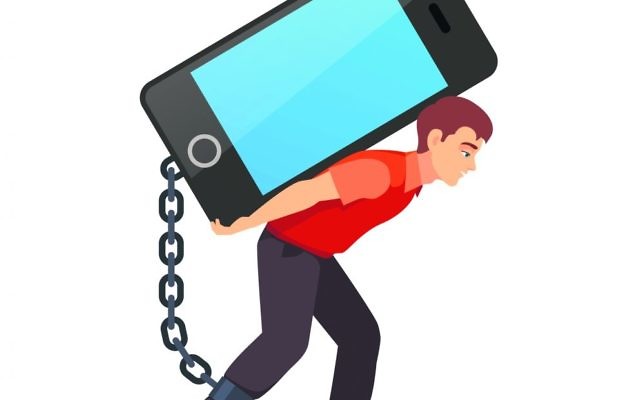25 hours of tech-free bliss
As the power of technology to communicate and inform is equalled by its capacity to distract and disrupt, only an obligation to fully switch off allows me to truly switch on.
IT is rare for a company to advertise its latest product update by claiming that it will enable consumers to use the product less.
But that is how Apple CEO Tim Cook explained some features of the iPhone operating system, saying that the changes would encourage users to put their phones down.
Apple have realised that “phone addiction” (or, more accurately, “overuse dependency syndrome”) is real, and that they need to help their customers to overcome it (or at least, like the alcohol and gambling industries, to appear to acknowledge the problem).
I recognise the symptoms myself. Compared to the pre-smartphone era, I concentrate for shorter periods, am easily distracted by the need to check the latest news or to click on a notification (looking for background information on Wikipedia may feel educational and worthy, but it still counts as an interruption).
Even worse, my smartwatch buzzes every time an app has a message for me, and I am rightly berated by family and colleagues for glancing at my wrist repeatedly mid-conversation.
Educators grapple with the challenge of introducing tablets into the classroom in order to harness their tremendous educational benefits whilst minimising the disturbance that they can generate.
This is apart from the related but distinct compulsion of social media and the pressure to look good and be “liked”.
The most worrying consequence of my phone addiction is the stress that results from the 24/7 nature of today’s communication technologies.
Not so long ago, in what seems like another world, my day as a principal would begin by responding to a tall pile of mail until after a couple of hours the pile was gone, leaving uninterrupted time for working on projects or monitoring the school in action.
But today, emails arrive at every hour of the day or night. I am not blessed with the willpower to only respond at certain times; each email (or WhatsApp, or SMS, or Facebook message, and so on ad infinitum) demands to be read immediately.
And while I’m in a meeting or even a conversation, the incessant buzz from my watch fills me with dread at the thought of how many emails will need reading and acting upon as soon as possible.
Technology is undoubtedly a blessing. It enables us to work more efficiently than ever before. It provides more information and hence enrichment to our lives than mankind has ever dreamed of. Yet it comes at great cost.
But I have found something that, while it does not solve the problem, does help to reduce the stress and other symptoms of this addiction.
Although some readers undoubtedly will suspect that this lifestyle tip I’m about to reveal is actually covert rabbinic evangelism, good advice should be shared even if it does overlap with a religious Jewish practice.
My habit is to turn my phone off. For 25 hours. And my iPad, computer, and television as well, from Friday afternoon until Saturday evening.
The trick is not just to restrict phone usage for “important” needs but to turn it off completely, because we are all good at convincing ourselves that checking on the weather or Instagram is an emergency.
My experience on this phone-free day is that I spend far more time conversing and laughing with my family, giving them my truly undivided attention.
I spend more, and better, time with friends. I read and study with a concentration and a depth which is absent the rest of the week, with distractions limited to occasional top-ups of coffee and cake.
But the biggest gain is to my mental wellbeing. During those 25 hours, the stress and worry of the ever-growing digital pile of emails to attend to is completely gone.
For one thing, my phone is off and I live in blissful ignorance of how many messages are coming in.
And even if I forget to power down the device, and a glow from the screen in the corner of my eye indicates some incoming communication, the knowledge that there is no way that I can respond before nightfall leads to complete liberation from the desire to even read it.
I am often confronted by those who claim that the laws of Shabbat may have had their use in times past, or that the ubiquitous nature of modern technologies have made the demands of halachah impractical or even impossible to maintain.
My experience tells me that the precise reverse is true. A cessation of laborious work may have helped our ancestors to relax, but in our times, the observance of Shabbat gives me so much more than a rest.
As the power of technology to communicate and inform is equalled by its capacity to distract and disrupt, only an obligation to fully switch off allows me to truly switch on.
RABBI JAMES KENNARD is principal of Mount Scopus Memorial College.


comments